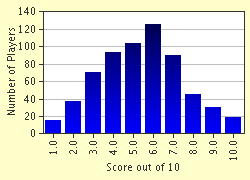Quiz Answer Key and Fun Facts
1. Vichy, a spa in central France, was the seat of a French government which collaborated with the Germans in the years 1940-1944. Did this French government choose this place of their own free will?
2. Who was the head of state of the Vichy government?
3. Only responsible to the head of state was a minister, head of government, who acted as Prime Minister. Who acted as such during the greater part of the Vichy period, and made himself the most notorious collaborator of France?
4. There was once a tall French general, who opposed first the armistice in June 1940, and then the Vichy government most vehemently. In England he created what were known as the Free French Forces. Much later on he became the first president of the 5th French Republic. Now try to give the correct answer!
5. In 1940-1942 France itself was divided in three zones. A zone occupied by the Germans, a zone which was not occupied by foreign armies, and a zone occupied by military from another country. Which country was that?
6. Just before and at the time of the French-German armistice in 1940 Hitler was more moderate in his demands upon defeated France than Mussolini. What was the reason of Hitler?
7. Now for the formal constitutional status of Vichy. What was it then?
8. In 1941 a number of French volunteered to fight with the Germans against the Russians. But a greater number also had to do this, although not of their own free will. The greater part of the latter category were:
9. What induced the Germans in November 1942 to occupy the hitherto unoccupied zone of Vichy?
10. In the summer of 1944 the Allies liberated the greater part of France. Only small plots remained in German hands. What became of the Vichy government?
Source: Author
Oblomov
This quiz was reviewed by FunTrivia editor
bloomsby before going online.
Any errors found in FunTrivia content are routinely corrected through our feedback system.
